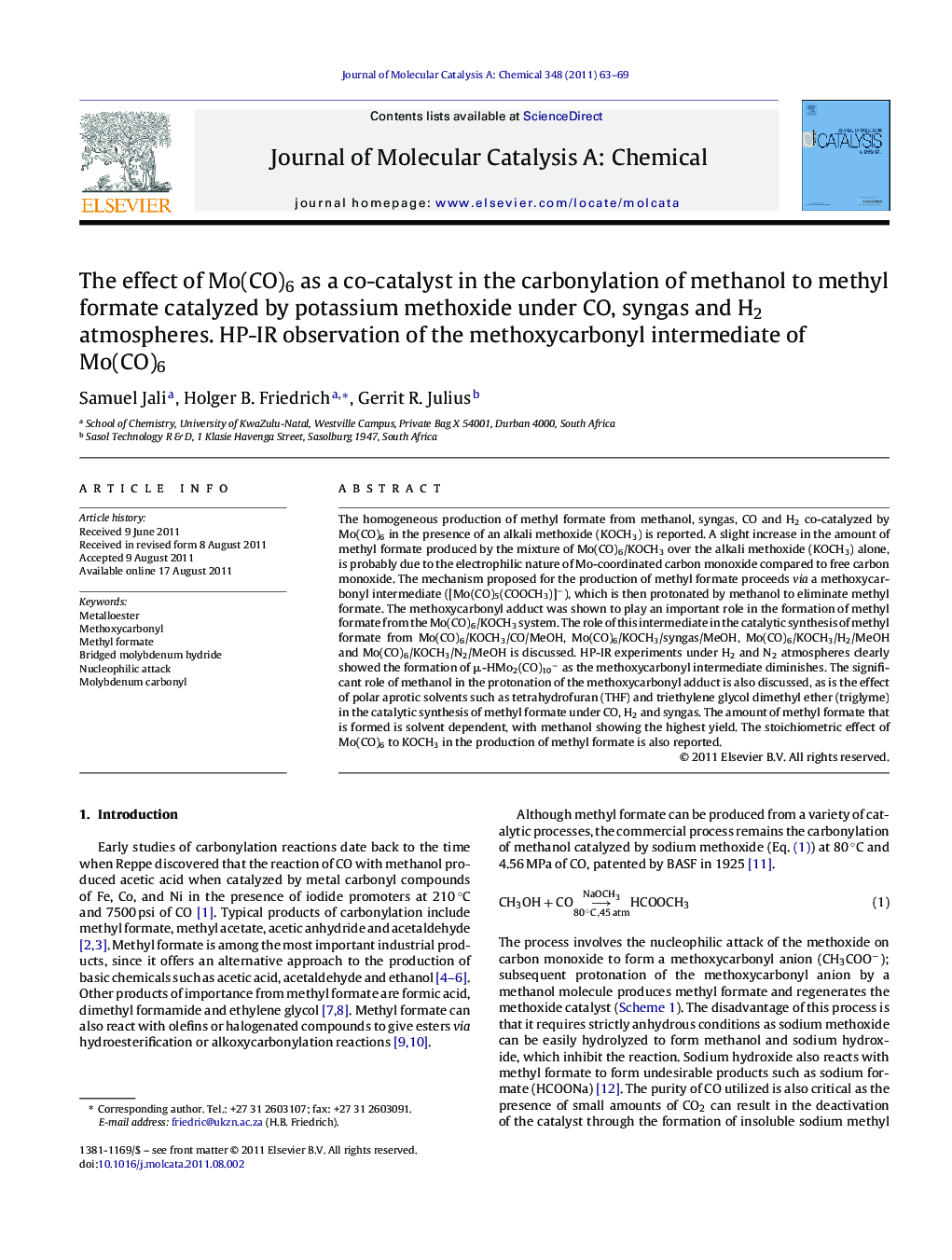| کد مقاله | کد نشریه | سال انتشار | مقاله انگلیسی | نسخه تمام متن |
|---|---|---|---|---|
| 66285 | 48423 | 2011 | 7 صفحه PDF | دانلود رایگان |

The homogeneous production of methyl formate from methanol, syngas, CO and H2 co-catalyzed by Mo(CO)6 in the presence of an alkali methoxide (KOCH3) is reported. A slight increase in the amount of methyl formate produced by the mixture of Mo(CO)6/KOCH3 over the alkali methoxide (KOCH3) alone, is probably due to the electrophilic nature of Mo-coordinated carbon monoxide compared to free carbon monoxide. The mechanism proposed for the production of methyl formate proceeds via a methoxycarbonyl intermediate ([Mo(CO)5(COOCH3)]−), which is then protonated by methanol to eliminate methyl formate. The methoxycarbonyl adduct was shown to play an important role in the formation of methyl formate from the Mo(CO)6/KOCH3 system. The role of this intermediate in the catalytic synthesis of methyl formate from Mo(CO)6/KOCH3/CO/MeOH, Mo(CO)6/KOCH3/syngas/MeOH, Mo(CO)6/KOCH3/H2/MeOH and Mo(CO)6/KOCH3/N2/MeOH is discussed. HP-IR experiments under H2 and N2 atmospheres clearly showed the formation of μ-HMo2(CO)10− as the methoxycarbonyl intermediate diminishes. The significant role of methanol in the protonation of the methoxycarbonyl adduct is also discussed, as is the effect of polar aprotic solvents such as tetrahydrofuran (THF) and triethylene glycol dimethyl ether (triglyme) in the catalytic synthesis of methyl formate under CO, H2 and syngas. The amount of methyl formate that is formed is solvent dependent, with methanol showing the highest yield. The stoichiometric effect of Mo(CO)6 to KOCH3 in the production of methyl formate is also reported.
Figure optionsDownload high-quality image (221 K)Download as PowerPoint slideHighlights
► The Mo(CO)6 catalyzed production of methyl formate from CH3OH, syngas, CO, H2 and KOCH3 was studied.
► HP-IR studies under CO, syngas, H2 and N2 showed that the mechanism goes via [Mo(CO)5(COOCH3)]−.
► [Mo(CO)5(COOCH3)]− is then protonated by methanol to eliminate methyl formate.
► HP-IR results under H2 and N2 showed formation of μ-HMo2(CO)10− as [Mo(CO)5(COOCH3)]− diminishes.
► The role of methanol in the protonation of the methoxycarbonyl adduct is significant.
Journal: Journal of Molecular Catalysis A: Chemical - Volume 348, Issues 1–2, 1 September 2011, Pages 63–69